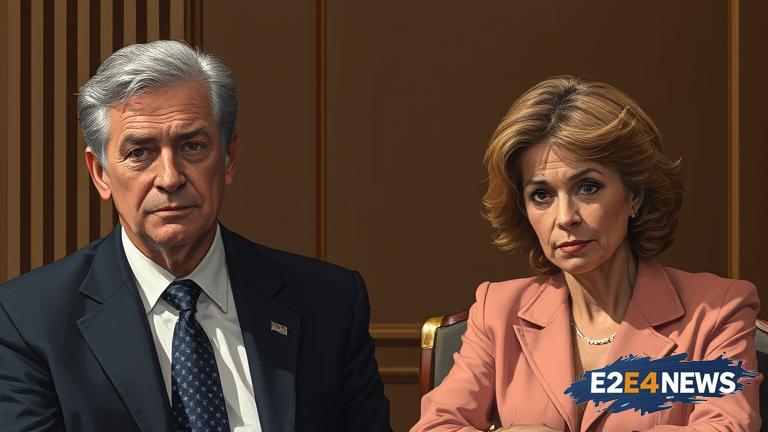In a shocking revelation, prosecutors have disclosed to judges that the grand juries involved in the cases of Jeffrey Epstein and Ghislaine Maxwell did not directly hear from the victims. This news has sent shockwaves through the legal community and has raised questions about the handling of these high-profile cases. The grand jury process is a crucial part of the US legal system, allowing citizens to determine whether there is enough evidence to proceed with a trial. However, in the cases of Epstein and Maxwell, it appears that the victims’ voices were not directly heard by the grand juries. Prosecutors have stated that they presented evidence and testimony to the grand juries, but the victims themselves did not testify. This decision has been met with criticism from advocates for victims’ rights, who argue that the victims’ testimonies are essential in ensuring that justice is served. The cases of Epstein and Maxwell have been highly publicized due to the nature of the allegations and the high-profile individuals involved. Epstein, a wealthy financier, was accused of sex trafficking and abusing minors, while Maxwell, his former partner, was accused of aiding and abetting his crimes. The fact that the grand juries did not directly hear from the victims has sparked controversy and debate about the effectiveness of the grand jury system. Some argue that the system is flawed and that victims’ rights are not being adequately protected. Others argue that the prosecutors’ decision was necessary to protect the victims from further trauma. The revelation has also raised questions about the role of prosecutors in the grand jury process. Are they truly representing the interests of the victims, or are they prioritizing other considerations? The answer to this question is not clear, and it is likely that the debate will continue in the coming weeks and months. As the legal community grapples with the implications of this news, it is essential to consider the potential consequences for victims’ rights and the grand jury system as a whole. The cases of Epstein and Maxwell are complex and multifaceted, and it is crucial that all parties involved are held to the highest standards of accountability. The fact that the grand juries did not directly hear from the victims is a concerning development that warrants further investigation and scrutiny. It is essential to ensure that the voices of victims are heard and that their rights are protected throughout the legal process. The news has also sparked a wider conversation about the need for reform in the grand jury system. Some argue that the system is outdated and that it is time for a new approach that prioritizes victims’ rights and ensures that justice is served. Others argue that the system is effective and that any reforms would be unnecessary and potentially harmful. As the debate continues, it is essential to consider the perspectives of all parties involved, including victims, prosecutors, and judges. The cases of Epstein and Maxwell are a reminder that the legal system is complex and multifaceted, and that there are often no easy answers. However, by working together and prioritizing victims’ rights, it is possible to create a more just and equitable system for all. The news has also highlighted the importance of transparency and accountability in the legal system. It is essential that all parties involved are held to the highest standards of accountability and that the legal process is transparent and fair. The fact that the grand juries did not directly hear from the victims is a concerning development that warrants further investigation and scrutiny. It is essential to ensure that the voices of victims are heard and that their rights are protected throughout the legal process. The cases of Epstein and Maxwell are a reminder that the legal system is complex and multifaceted, and that there are often no easy answers. However, by working together and prioritizing victims’ rights, it is possible to create a more just and equitable system for all. The news has sparked a wider conversation about the need for reform in the grand jury system and the importance of prioritizing victims’ rights. It is essential to consider the perspectives of all parties involved and to work towards creating a more just and equitable system for all. The cases of Epstein and Maxwell are a reminder that the legal system is complex and multifaceted, and that there are often no easy answers. However, by working together and prioritizing victims’ rights, it is possible to create a more just and equitable system for all.
